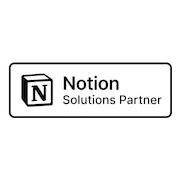Blog
Read our blog articles on Notion and systems for scalable operations.
150 K
Happy Clients.

How Small Business Owners Can Master Delegation and Finally Stop Doing Everything Themselves
If you’re a small business owner or entrepreneur trying to do it all, you’re not alone.
But here’s the truth: refusing to delegate is costing you time, energy, and business growth. Delegation isn’t just helpful—it’s critical to scaling a business. It helps you free up your time, reduce burnout, and focus on the high-value work that actually grows your business.
In this post, you’ll learn how to delegate effectively, what tasks to delegate, and how to implement delegation strategies that work—without micromanaging. Whether you’re a startup founder, an entrepreneur building a team, or managing a growing company, this guide will help you build a stronger, more empowered team.
Why Delegation Is Essential for Every Business Owner
Being a business owner means juggling sales, client work, hiring, admin, strategy, and more. But trying to handle everything yourself is not sustainable. Many small business owners reach a point where their time becomes the bottleneck.
The delegation process is how you move from running a small business to building a scalable company. Entrepreneurs and small business owners need to stop thinking of delegation as “giving up control” and start seeing it as a leadership skill.
When you delegate effectively, you empower your team, reduce errors, and create time to focus on what matters most—like strategy, innovation, and client relationships.
What’s Stopping You From Delegating?
Many small business owners don’t delegate even though they know they should. Why?
Because they believe:
“It’s faster if I just do it.”
“No one else will do it like I do.”
“I can’t trust someone else with this.”
But these beliefs lead to micromanaging, decision fatigue, and eventually, burnout.
Here’s the truth: effective delegation isn’t about dumping tasks. It’s about assigning them with clarity, training your team to handle them, and creating systems that work without you.
Delegation requires a mindset shift. You have to trust your team, document your processes, and learn to delegate before your business scales past your capacity.
Know Which Tasks to Delegate (And What to Keep)
A lot of entrepreneurs feel stuck because they don’t know which tasks to delegate. Start here:
Delegate tasks that are:
Repetitive
Administrative
Easy to teach
Not directly tied to business growth
Examples:
Calendar management
Customer service responses
Data entry
Invoicing and receipts
Social media scheduling
Keep tasks that require:
High-level decision making
Deep subject matter expertise
Vision and leadership
Financial oversight
This is the foundation of effective delegation strategies: know what to keep and what to delegate based on your role as the business leader.
Letting Go: The Hardest (But Most Necessary) Part of Delegation
Here’s the thing most entrepreneurs don’t want to hear: delegation starts with letting go.
Letting go of perfection. Letting go of micromanaging. Letting go of the belief that you’re the only one who can do this.
Delegation works when you:
Trust your team
Provide clear instructions
Allow room for mistakes and learning
If you’re always “taking tasks back” or redoing work, delegation won’t stick. And you’ll continue to be the bottleneck. If you want to grow your business, you have to start delegating and be okay with 85% done by someone else rather than 100% done by you.
How to Delegate Work to Employees Without Micromanaging
You can’t just assign a task and walk away. You need a delegation system.
Here’s how to delegate work to employees without hovering:
Set clear outcomes – Explain what success looks like.
Use SOPs – Document step-by-step instructions for repeatable tasks.
Assign based on skills – Don’t delegate just because someone has time. Delegate to the right people.
Check in—not micromanage – Set up regular check-ins to offer support, not control.
This builds a sense of ownership for your team and shows you how to delegate effectively—without needing to watch every move.
Why Delegation Builds a Stronger Business
Delegation isn’t just about freeing up your schedule. It’s about building a stronger business that can function and thrive without you in every decision.
When you delegate tasks:
You create time for strategic work
Your team learns new skills
You become a more effective leader
The result? Your company grows, your employees feel more engaged, and you stop being a jack-of-all-trades holding everything together.
Learning how to delegate well is part of building a business, not just managing one.
Automate or Delegate? Choose Wisely.
Not every task needs a person behind it. Some things are better handled through automation.
You can use automation tools to:
Send client onboarding emails
Trigger task creation
Automate status updates
Handle repetitive tasks like invoice reminders
For everything else, delegate to trusted employees or contractors.
Knowing when to automate vs. delegate is a key skill for any entrepreneur. It saves valuable time and lets your team focus on high-impact work.
Delegation Strategies for Small Businesses That Actually Work
Many small business owners try delegation once, it fails, and they give up.
Here are three delegation strategies that actually work:
Create a delegation dashboard
Use a central platform (like Notion) to manage assignments, SOPs, and deadlines.Build trust through transparency
Give your employees the tools, context, and support they need—not just tasks. Build trust with your team by sharing the why behind the work.Track progress visually
When you manage tasks visually, your team sees where things stand. You reduce confusion and increase accountability. This is essential if you want to delegate effectively and avoid micromanaging.
Delegation Mistakes to Avoid
Here’s what not to do when delegating:
Don’t delegate with vague instructions.
Always clarify what “done” looks like.Don’t skip the follow-up.
Delegation doesn’t mean ignoring the outcome. It means guiding the outcome.Don’t delegate and disappear.
You still need to offer guidance and support—especially if it’s a new responsibility.
Remember: successful delegation is a skill. It’s not about dumping tasks. It’s about managing tasks, building systems, and empowering others to take ownership.
How Systems Like Notion Make Delegation Actually Work
Even with the best intentions, delegation falls apart fast without structure.
You might assign a task... but then forget to follow up. Or your team member doesn't know where to find the info they need. Or you’re stuck repeating instructions for the fifth time this month.
This is where systems step in—and why a project management tool like Notion makes a real difference.
It helps you keep your delegation process clean and centralized. No chasing Slack threads. No mystery around who owns what.
Here’s what it can look like when it’s working:
Tasks assigned clearly, with due dates and status tracking
SOPs and checklists stored in one place, so no one has to ask twice
Project updates and notes all visible—no more info silos
Automations running behind the scenes to handle repetitive admin
It’s less about using a fancy tool, and more about finally having a place where your delegation system lives and breathes.
That way, your team isn’t guessing. And you’re not stuck answering the same questions every week.
If that sounds like something you could use—but you’re not sure where to start—we can help.
We build custom Notion systems for teams who are ready to stop micromanaging and start scaling.
Want to talk it through?
👉 Here’s the link to book a strategy call.
No pressure, just a chat to see if the support would be helpful.
Copyright 2025 Taimi Ventures Oy, Taina Pereenniemi, All Rights Reserved.
This site is not a part of the Facebook website or Meta Platforms, Inc. This site is NOT endorsed by Meta in any way. FACEBOOK and META are trademarks of Meta Platforms, Inc.


